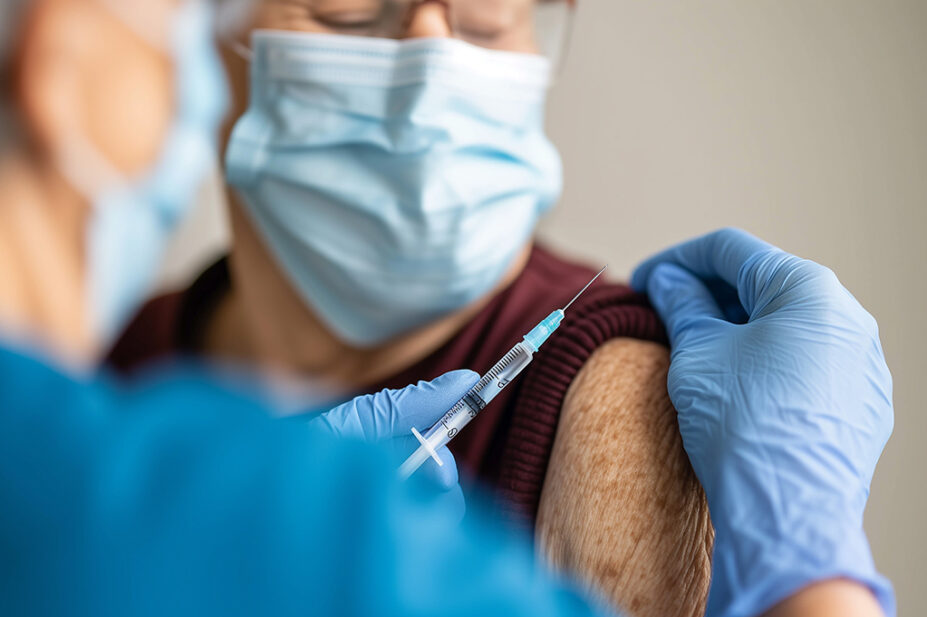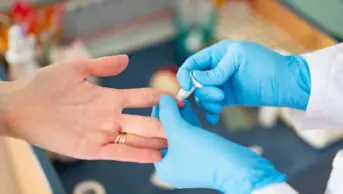
Shutterstock.com
Vaccines are “under-utilised” in the fight against antimicrobial resistance, according to attendees at a roundtable organised by the Microbiology Society.
A report from the roundtable, held in February 2025 and published on 14 August 2025 in the Journal of Medical Microbiology — a peer-reviewed journal produced by the Microbiology Society — summarised that the roundtable discussions highlighted how vaccines can prevent infections, reduce antibiotic use and limit the emergence of antimicrobial resistance.
According to the report, Mateusz Hasso-Agopsowicz, technical officer at the World Health Organization (WHO), told attendees that despite their “significant potential”, vaccines are often overlooked and under-utilised when it comes to antimicrobial stewardship.
Andrew Pollard, director of the Oxford Vaccine Group at Oxford University and outgoing chair of the Joint Committee on Vaccination and Immunisation (JCVI), told attendees that AMR was not currently included in the JCVI’s terms of reference, which the report says highlights “a gap in policy focus”.
The report said that attendees concluded that there was an “urgent need to strengthen the evidence base for vaccine impact on AMR”.
They also said it was important to explicitly incorporate vaccines into national and global AMR action plans.
Attendees also suggested that, if sufficient evidence is gathered, then stating the benefits of potential reduction of AMR on vaccine product labels could “drive demand and commercial viability”.
The themes echo those shared at the 2025 Royal Pharmaceutical Society (RPS) National Pharmacy Association (NPA) and University College London (UCL) annual lecture, held at the Royal Society, London, in January 2025.
Delivering the lecture, Calman MacLennan, vice president of vaccine clinical research and development at Pfizer and professor of vaccine immunology at the University of Birmingham, spoke about how vaccines play an important role in AMR by reducing antibiotic use. He added that more data were needed to quantify their impact.
Commenting on the report, Olivier Picard, chair of the NPA said: “We know there is growing evidence that vaccines have enormous potential to help tackle AMR.
“Pharmacies can help deliver more vaccines to patients quickly, conveniently and safely, increasing uptake.
“Pharmacists are highly trained health care professionals who see nearly two million patients a day and provide medication advice. They can supply antimicrobials in some circumstances but only when they are clinically needed.
“Pharmacies take very seriously their role as antimicrobial stewards and provide more clinical services than ever before, taking pressures away from GPs and the rest of the health system.”
Amit Aggarwal, medical director at the Association of the British Pharmaceutical Industry, said: “The value of vaccines in the fight against antimicrobial resistance is all too often overlooked, including in the UK’s own national action plan on AMR.
“Better use of vaccines could reduce antibiotic use by as much as a fifth (22%). Increasing the coverage of some existing vaccines could prevent 106,000 deaths linked to AMR annually, and developing new vaccines could save an additional 543,000 lives — and that’s just looking at some limited diseases.
“To realise these benefits, vaccine approval frameworks must recognise AMR reduction as a benefit. This would make it easier to secure the necessary funding and regulatory approval for AMR-targeted vaccines. We urge policymakers to address this issue and others outlined in the report.”
Community pharmacies have recently been providing a wider range of vaccinations, including against RSV. And further vaccination programmes could be developed, such as against HPV.
On 4 August 2025, announcing the “world-first” NHS roll-out of a gonorrhoea vaccine, Ashley Dalton, minister for public health and prevention, said that the programme would “help turn the tide on infections, as well as tackling head on the growing threat of antibiotic resistance”.


